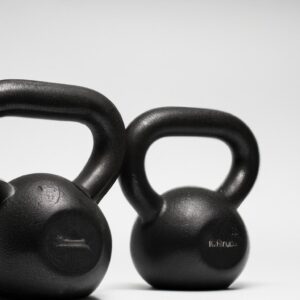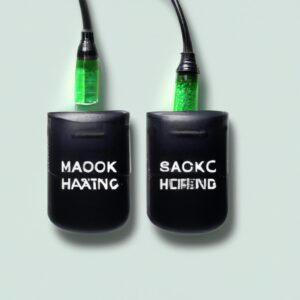**”The Role of Nutrition in Muscle Recovery: How Specific Nutrients Aid in Repair and Growth After Intense Workouts”**
# The Role of Nutrition in Muscle Recovery: How Specific Nutrients Aid in Repair and Growth After Intense Workouts
The journey to fitness doesn’t end when you leave the gym. In fact, it begins anew with proper nutrition that plays a crucial role in muscle recovery. After intense workouts, your body faces the challenge of repairing damaged muscle fibers and replenishing energy stores. Understanding how specific nutrients contribute to this process can help optimize recovery and boost performance. This blog post explores the essential nutrients for muscle recovery, offers practical nutrition tips, provides exercise advice, and highlights the overall health benefits of a well-balanced post-workout diet.
## The Importance of Muscle Recovery
Muscle recovery is a critical aspect of any training regimen. Intense workouts cause micro-tears in muscle fibers, which can lead to soreness and fatigue. Recovery is essential not only to repair these tears but also to promote muscle growth, improve performance, and reduce the risk of injury. The right nutrition can significantly enhance the recovery process, allowing for quicker return to training and better overall results.
### Key Nutrients for Muscle Recovery
#### Protein
Protein is perhaps the most recognized nutrient for muscle recovery. It provides the building blocks—amino acids—that are necessary for repairing and building new muscle tissue. Consuming protein after workouts can stimulate muscle protein synthesis, enhancing recovery and growth.
#### Carbohydrates
Carbohydrates play a vital role in replenishing glycogen stores that are depleted during intense exercise. Glycogen is the primary fuel source for muscles during workouts, and restoring these levels is essential for optimal performance in subsequent training sessions. Including carbohydrates in your post-workout meal can also help with recovery by reducing muscle soreness.
#### Fats
While protein and carbohydrates often take center stage, healthy fats are crucial for overall recovery. They help in the absorption of fat-soluble vitamins and can have anti-inflammatory effects, which may aid in reducing muscle soreness and promoting recovery.
## Nutrition Tips
1. **Timing Matters**: Aim to consume a post-workout meal or snack within 30 to 60 minutes after exercising. This window is critical for maximizing muscle recovery.
2. **Balanced Meals**: Include a mix of protein and carbohydrates in your post-workout meals. A suggested ratio is approximately 3:1 carbohydrates to protein for optimal recovery.
3. **Stay Hydrated**: Don’t forget about hydration. Water is vital for recovery as it helps transport nutrients and supports muscle function. Consider electrolyte-rich drinks if you’ve had an intense workout.
4. **Incorporate Whole Foods**: Focus on whole, nutrient-dense foods like lean meats, fish, eggs, whole grains, fruits, and vegetables. These foods provide a range of vitamins and minerals critical for recovery.
5. **Consider Supplements Wisely**: While whole foods should be your primary source of nutrients, certain supplements like whey protein or BCAAs (branched-chain amino acids) can be beneficial if you struggle to meet your protein needs through diet alone.
## Exercise Advice
To complement your nutritional efforts, it’s essential to incorporate effective recovery strategies into your exercise routine. Here are some tips:
1. **Cool Down**: After your workout, take time to cool down with light stretching or low-intensity exercises. This helps to gradually lower your heart rate and can aid in reducing muscle stiffness.
2. **Active Recovery**: Consider incorporating active recovery days into your training schedule. Low-impact activities like walking, swimming, or yoga can promote blood flow and help reduce muscle soreness.
3. **Listen to Your Body**: Pay attention to how your body feels post-workout. If you experience excessive fatigue or soreness, allow for additional rest days or modify your training intensity.
## Health Benefits
Proper nutrition during the recovery phase offers several health benefits beyond muscle repair:
1. **Improved Performance**: Enhanced recovery leads to better performance in subsequent workouts, allowing you to push harder and achieve your fitness goals.
2. **Reduced Injury Risk**: A well-nourished body is less susceptible to injuries. Adequate nutrition supports joint health and muscle function, reducing the likelihood of strains and sprains.
3. **Enhanced Immune Function**: Intense workouts can temporarily weaken the immune system. A balanced diet rich in vitamins and minerals can bolster your immunity, helping you stay healthy and consistent with your training.
4. **Mental Benefits**: Nutrition impacts not only physical recovery but also mental well-being. Proper fueling can lead to improved mood, better focus, and increased motivation to train.
## Conclusion
In summary, nutrition plays a vital role in muscle recovery by providing essential nutrients that aid in repair and growth after intense workouts. By focusing on balanced meals rich in protein, carbohydrates, and healthy fats, you can optimize your recovery process, enhance performance, and reap numerous health benefits. Remember that the journey to fitness is as much about what you eat as it is about how you train—nourishing your body is key to achieving your fitness goals.















Post Comment